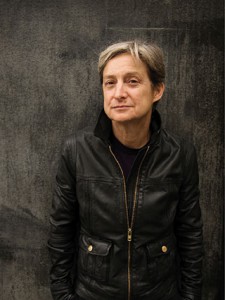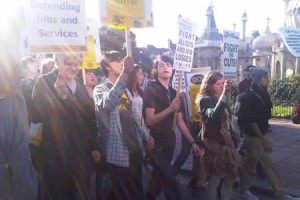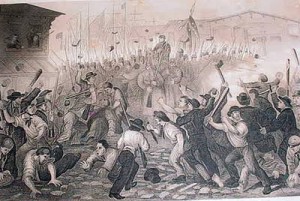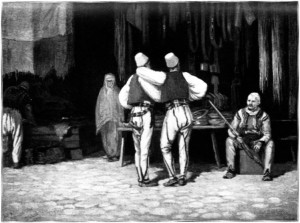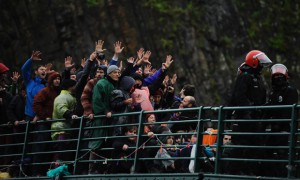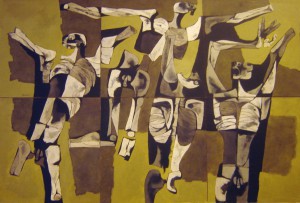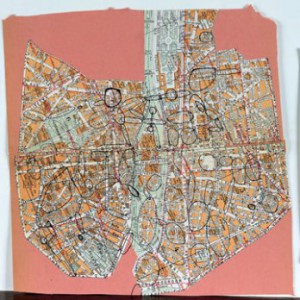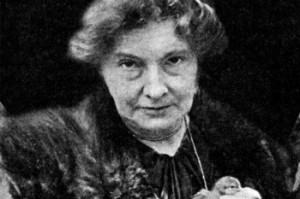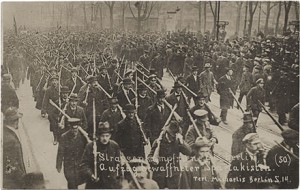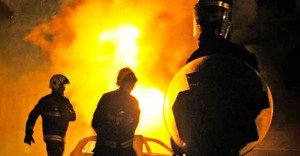Equality, Vulnerability, Precarity | Reading Group on Judith Butler’s work
February 13th, 2014 by Brighton CSRGEquality, Vulnerability, Precarity
Reading Judith Butler’s Precarious Life and Frames of War
Pavilion Parade, University of Brighton
30th April – 11th June 2014
In this term-long reading course, hosted by the Critical Studies Research Group and the Understanding Conflict Research Cluster, we will engage in a close critical reading of Judith Butler’s Precarious Life (2004) and Frames of War (2009). In these texts Butler further develops her recent ethical work, offering a theory of generalised precariousness to interrogate the conditions necessary for a life to be livable. She situates her analysis in the context of modern warfare, focusing her critique on the ‘war on terror’ and the Israeli State’s occupation of Palestine. This course will be relevant to those interested in philosophy, political theory, history, law, sociology, war and peace studies, memory studies, gender studies, queer theory, international relations, cultural studies and geography.
The reading course is free and open to all members of University of Brighton and University of Sussex. All sessions will be held between 16:00 and 18:30 on Wednesday afternoons in B5 Pavilion Parade, BN2 1RA.
To register interest please contact Tim Huzar: t.huzar1@uni.brighton.ac.uk.
The Critical Studies Research Group (CSRG) was founded in 2011 by postgraduate students in the School of Humanities, University of Brighton, with the aim of providing an interdisciplinary forum for the discussion of critical ideas and practices in light of the socio-political struggles we face today. The challenges that interdisciplinarity might pose are counteracted by our shared interest in the role and scope of critical thought and practice in the context of contemporary capitalism. For more information on the CSRG, please visit: brightoncsrg.noblogs.org.
The recently established Understanding Conflict research cluster brings together expertise in humanities and social sciences from across the University of Brighton. The cluster aims to develop, over a number of years, a valuable interdisciplinary synthesis for understanding and engaging with the forms and legacies of recent and contemporary violent conflict.
Course Outline
All sessions will be held between 16:00 and 18:30
on Wednesday afternoons in B5 Pavilion Parade, BN2 1RA.
Precarious Life
30th April
‘Explanation and Exoneration, or What We Can Hear’ – Chapter One
‘Violence, Mourning, Politics’ – Chapter Two
7th May
‘Indefinite Detention’ – Chapter Three
‘The Charge of Anti-Semitism: Jews, Israel and the Risks of Public Critique’ – Chapter Four
14th May
‘Precarious Life’ – Chapter Five
‘Violence, Non-Violence: Sartre on Fanon’ in Graduate Faculty Philosophy Journal, 27:1, 2006
Frames of War
21st May
‘Introduction to the Paperback’
‘Introduction: Precarious Life, Grievable Life’
28th May
‘Survivability, Vulnerability, Affect’ – Chapter One
‘Torture and the Ethics of Photography: Thinking with Sontag’ – Chapter Two
4th June
‘Sexual Politics, Torture, Secular Time’ – Chapter Three
‘Non-Thinking in the Name of the Normative’ – Chapter Four
11th June
‘The Claim of Non-Violence’ – Chapter Five
Mills, C. (2007), ‘Normative Violence, Vulnerability and Responsibility’, Differences, 18:2
Jenkins, F. (2007), ‘Toward a Nonviolent Ethics’, Differences, 18:2
